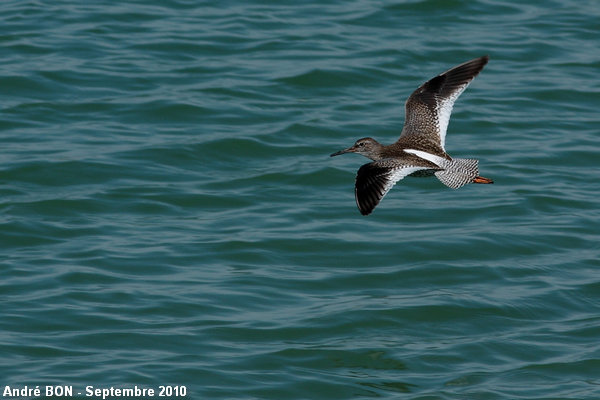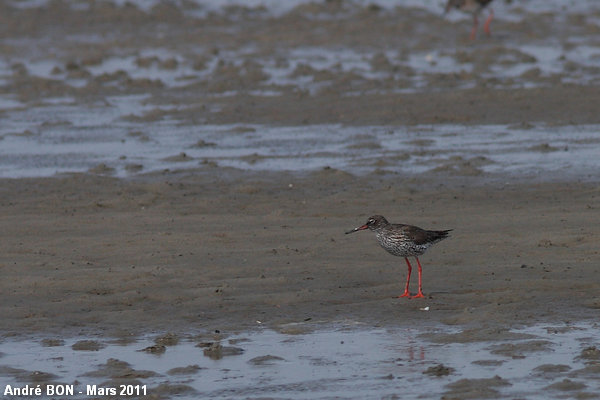

| Common Redshank (Tringa totanus (Linnaeus, 1758)) |


|
|
Scientific name: Tringa totanus (Linnaeus, 1758) Common name: Common Redshank French name: Chevalier gambette Order: Charadriiformes Family: Scolopacidae Size: Body size: from 27 to 29 cm; Weight: from 85 to 155 g; Wingspan: from 45 to 52 cm. Habitat: Water meadows, marshes, estuaries. Food: Molluscs and crustaceans and some insects, spiders and worms during the breeding season. Nesting: The nest is located on the ground in a small depression. It is often hidden under the vegetation. Females lay about 4 eggs between April and June. The chicks quickly feed by themselves. The parents take care of them during about one month. Migration: The Common Redshank migrates to the Mediterranean regions or to Africa in winter. Geographic area: Europe, Asia, Africa, Australia. |
The Common Redshank is a small wader perched high on reddish orange legs. The long, thin and straight bill is an orange colour near the base. The Common Redshank has a greyish brown plumage. The back, the upper side of the wings, the head and the neck turn to dark brown in breeding plumage. The under side is white and black-spotted. You can easily tell it apart, in flight, with the white bands on the rear edge of the wings. Only the Ruff (Philomachus pugnax) and the Spotted Redshank (Tringa erythropus) in winter plumage also show red legs. You can recognize the Ruff with its short bill. The Spotted Redshank is taller with longer legs. Its bill is longer and slightly curved. |
| [To know more about the Common Redshank] [Next picture] [Top] |

|
I have observed a few Common Redshanks next to a lake, formed by gravel excavation, in a water meadow of the Basse vallée du Doubs. The large white bands on the rear edge of the wings confirm the species identification. |
| [To know more about the Common Redshank] [Previous picture] [Top] |

|
It has been difficult to approach waders feeding at low tide on the Wadden Sea shore. This Common Redshank always walked far from me. |